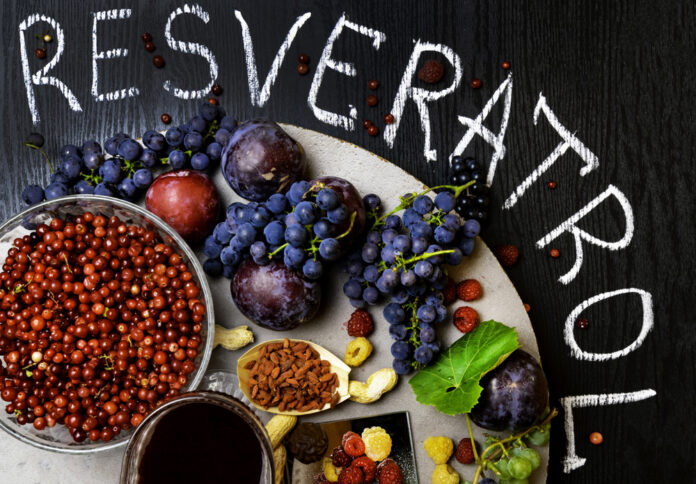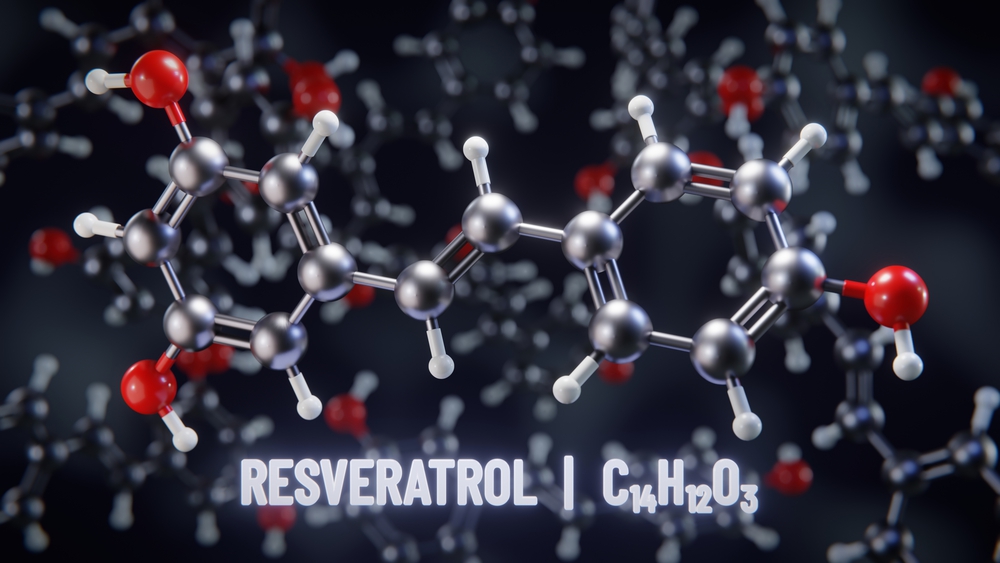Resveratrol is a natural anti-ageing polyphenol compound found in various plant sources, including the skins and seeds of red and purple grapes, berries, peanuts, and pistachios. It has garnered significant attention for its potential health benefits and medicinal properties.
One of the key properties of resveratrol is its anti-ageing antioxidant activity, which helps neutralise harmful free radicals in the body. Free radicals are unstable molecules that can damage cells and contribute to ageing and disease. By scavenging these free radicals, it may help protect cells from oxidative stress and reduce the risk of chronic diseases such as heart disease, cancer, and neurodegenerative disorders.
Resveratrol also exhibits anti-inflammatory effects, which can help reduce inflammation in the body. Chronic inflammation is linked to various health problems, including cardiovascular disease, arthritis, and diabetes. By modulating inflammatory pathways, resveratrol may help alleviate inflammation and improve overall health.
Another notable anti-ageing properties of resveratrol is its ability to activate sirtuins, a group of proteins involved in regulating cellular processes such as metabolism, DNA repair, and longevity. Sirtuins are associated with longevity and healthy ageing, and it has been shown to mimic the effects of calorie restriction, a dietary intervention known to extend lifespan in various organisms. By activating sirtuins, resveratrol may promote cellular repair and resilience, potentially slowing down the ageing process.
Additionally, resveratrol has been studied for its potential cardiovascular benefits. It may help lower blood pressure, improve cholesterol levels, and protect against heart disease by enhancing blood vessel function and reducing inflammation in the cardiovascular system.
Furthermore, research suggests that the anti-ageing compound may have neuroprotective effects, making it a potential therapy for neurodegenerative diseases such as Alzheimer’s and Parkinson’s. It can cross the blood-brain barrier, allowing it to exert its antioxidant and anti-inflammatory actions directly in the brain, where it may help protect neurons from damage and promote cognitive function.
Resveratrol FAQ
What are the recommended daily dosages of resveratrol for achieving its various health benefits, and how do these dosages compare to the amounts naturally occurring in foods like red wine and grapes?
The recommended daily dosages for achieving its various health benefits can vary depending on factors such as individual health status, age, and specific health goals. While the dosages used in research studies are often higher than what one would typically consume through diet or moderate red wine consumption, they provide valuable insights into the potential effects of resveratrol. It’s essential to consult with a healthcare professional to determine the appropriate dosage for individual needs and to ensure safety and effectiveness.
Are there any known contraindications or potential risks associated with long-term resveratrol supplementation, particularly when taken in higher doses?
While resveratrol is generally considered safe for most people when taken in recommended dosages, there are potential risks and contraindications to be aware of, especially with long-term supplementation or high doses. Some studies have suggested that resveratrol may interact with certain medications, particularly anticoagulants and antiplatelet drugs, potentially affecting blood clotting. Additionally, high doses of the supplements may cause gastrointestinal issues or interfere with specific enzymes in the body. It’s crucial to discuss any potential risks or concerns with a healthcare professional before starting resveratrol supplementation.
How can individuals ensure they are purchasing high-quality resveratrol supplements, and are there specific factors to consider, such as sourcing or manufacturing processes, to maximize effectiveness and safety?







It’s all bullshit everyone dies anyway sooner or later.